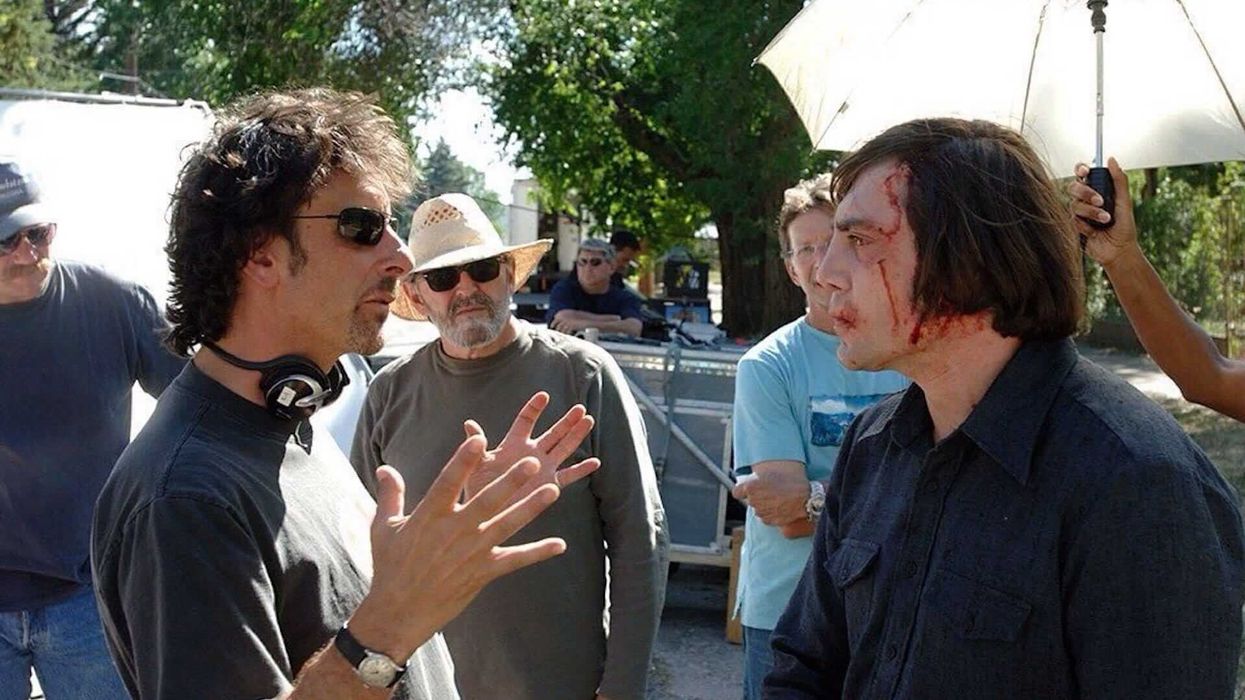10 Screenwriting Tips from the Coen Brothers
Does anyone write characters and plots better than the Coen brothers?

When it comes to writing, few people seem to have complete mastery over every aspect like the Coen brothers do. Their characters leap off the page, dialogue sings, and their plots fit the genre and audience expectations, but still manage to surprise and entertain us.
To me, they're two of the best living filmmakers, and no matter what they create, I always try to be first in line to watch.
The Coens' films are incredible showcases, but there's also lots to learn about process, technique, and mastery from them.
Check out this video from Outstanding Screenplays, and let's talk after the jump.
10 Screenwriting Tips from the Coen Brothers
1. You don’t have to follow a structured template to write a good screenplay—just go off by what feels right. The structure is already internalized in you.
Movies have been around for over a hundred years. Chances are, you've seen thousands.
You can feel the structure inside you. So when you get to a certain point, follow your gut. Go where you know it should go. Don't overthink it.
2. Make violence necessary for the story and the characters, rather than gratuitous.
What is your movie trying to say? What does the violence do to accentuate the world? Don't do anything for the sake of it, do things with intention.
3. If you’re being true to the real world, your screenplay needs to be capricious, even if that means killing off important characters and changing the trajectory of the plot suddenly to reveal what the story is really about.
One thing the Coens do so well is to shake the world up. They have no problem killing off famous faces or main characters to make a point with the audience.
In that way, if you're being true to your idea, consider granting the repercussions of killing the main characters off. Blow up the world in a way that keeps the audience on the edge of their seat.
4. Writing period pieces make for a much more transporting exoticized experience for the audience than writing a contemporary story.
While they can be hard to make in Hollywood, period pieces often have a lot to say about our world, but can trick people into getting the subtext by taking place in another time and place. Consider switching up your time and place to push your idea a step further.
5. Adapt the plot from real life, and make up your own characters to fit into that story.
Crazy things happen every day. Write them down, mash them up, gather the characters and events you see, and thrust them together. Sometimes truth is more entertaining than fiction.
6. Don’t try to have your own unique style just for the sake of it, instead think about what the right “language” is for each project individually, and a style might naturally emerge from your taste being reflected in them.
Sometimes, people focus too much on their voice, and not enough on why they took a project on. You can find your voice by really living in the world and telling us a story, not worrying about how it is described on the page.
7. Start writing a character that you would like to see a certain actor play, and write your next story from that character, even if you don’t end up casting that actor.
It really helps the overall writing to imagine the person in the role.
Think of a famous actor or just someone you love saying the lines. It can lean into other intentions and make you select words in a much more delicate and inventive way.
8. Find your own process of making movies that work, even if that means pre-thinking the entire movie in your head before shooting.
Nothing is better than feeling prepared. Before you set out to make things, sit and imagine them in your head. Picture each scene. The camera moves, ranges, dialogue, and characters. Really see them, then write them, and then, someday, you might film them.
9. Whatever genre you’re writing in, the writing process is always the same—at the end of the day, it’s about problem-solving.
We're big fans of education on genre. Genre is what helps you map your screenplay from beginning to end. Your genre will inform you of the expectations of the audience, including beats, story, and pacing. You can work in other elements, shake things up, or lean into them. It's all there to guide your gut.
10. Focus your screenwriting on the story and let the audience draw their own conclusions about the film’s social commentary if they would like.
The more you tell a story that draws people in, the more people will take from that story. The funny thing about a great screenplay is that people will apply it to their lives if they see an ounce of themselves in it. Make sure you're sharing enough for people to be drawn in.
Source: Outstanding Screenplays











